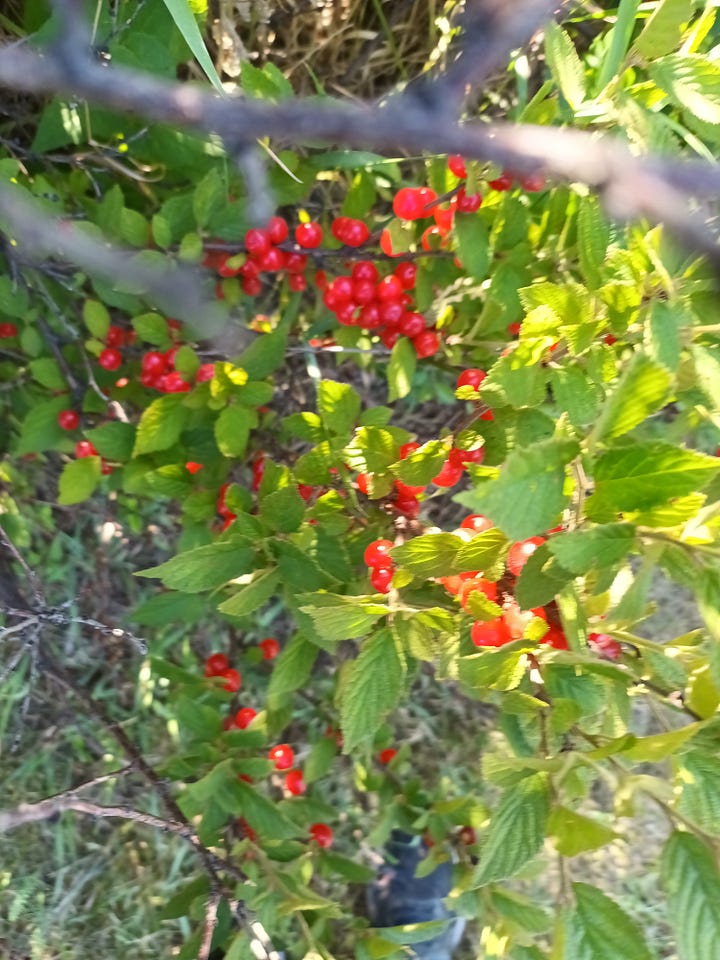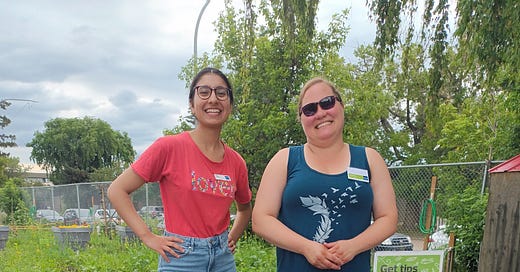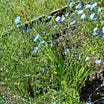A busy summer for Green Delton
Great advice and resources shared at the Climate Action Workshop Series
MARK STUMPF-ALLEN & GAIL SILVIUS
In a summer where we have had talk of drought, experienced a prolonged heat wave and power outages in the city, the Climate Action Series workshops seem more relevant than ever. Delton Community League’s Green Delton has continued to offer ideas for concrete climate actions to Edmonton residents.
Home composting was presented in May by graduates of the Master Composter/Recycler programs offered by the City of Edmonton. Michelle Wood reminded us that composting is really Mother Nature's work and we are only helping to gather the raw materials. In response to one participant's question, “Why bother when the city collects materials for the city compost facilities?” Michelle was quick to note the carbon footprint of city trucks collecting natural waste that can be composted and used in our own yards and gardens.
Vartika Kumar, another graduate of the city program, offered some practical ideas for families to get involved in the process of home composting. She has a pretty bowl on her counter for vegetable scraps while she prepares meals. She lets nature take her course with her compost and once a year has compost for her veggie garden.
The basics: greens (nitrogen), browns (carbon), air (Michelle showed us a nifty auger for mixing), and water (consistency of a damp sponge).
A month later, Mark Stumpf-Allen offered a workshop on regenerative lawn care. Regenerative growing puts the focus on creating deeper soil that holds more moisture and grows thicker lawn. We learned why monoculture — plants from just one family — makes soil worse, and looked at how lawns can be healthier when there is a variety of species growing, like clover or plantain.
Natural methods like mulching leaves can protect root systems and retain moisture in our lawns. Mulching also helps return nutrients to the soil without the need of expensive fertilizers. Taking a few easy steps is all it takes to regenerate your lawn. The hardest part may be to stop doing the things that harm soil - synthetic fertilizers and herbicides are constantly being shoved in our faces, but these products cause compaction, grow weeds, and cause disease. His presentation can be accessed via the Master Gardener Program; email OMG@RedBrickCommon.ca for a copy of the notes.


In July, we were happy to host a session from WildNorth on Healthy Backyards. Jessica Jones took us on a journey that touched on biodiversity, looking at wildlife in our city, and how we can create and sustain wildlife habitat and address climate issues in our cities with better practices for planting and waste management..
Many of us remember Winnie the Pooh getting his head stuck in the honey jar! Jessica reminded us that quickly rinsing our recyclables makes it less likely that a hungry or curious skunk can get their head stuck. (Yes, these are some of the kinds of emergencies that Wild North animal rehab people encounter). Another story Jessica shared was about large birds being poisoned by the lead weights that fishers might lose in the lake.
There were so many practical tips presented. One participant asked about bird baths in the face of the avian flu. People were encouraged to make sure their bird baths were well cleaned with a mild 10-to-1 bleach solution to prevent disease. Even cleaning up the ground under the bird feeders was mentioned.
Green Delton is evolving. We would love to hear and help share your climate action stories. Contact us at greendeltoncommunity@gmail.com







So fun and informative… and inspiring for a better world.